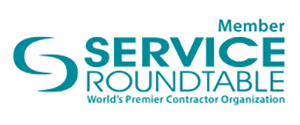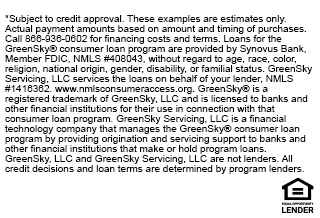Common Causes of Household Leaks and How to Prevent Them
Common Causes of Household Leaks and How to Prevent Them
Your home’s plumbing system can develop leaks from several common issues. You’ll encounter problems from worn-out seals, high water pressure, tree root infiltration, and loose connections. Temperature changes cause pipes to expand and contract, while aging appliance hoses become vulnerable to breaks. You can prevent most leaks through regular inspections of plumbing connections, monitoring water pressure, and replacing old hoses every 5-7 years. Watch for warning signs like wet spots, unusual sounds, or changes in water pressure. Understanding these threats and taking preventive action now will help you avoid costly water damage later.
Key Takeaways
- Worn-out seals in appliances like dishwashers and washing machines can cause water seepage, requiring regular inspection and timely replacement.
- High water pressure strains plumbing systems, causing leaks at joints and connections, which can be prevented with pressure-reducing valves.
- Tree roots infiltrating water lines create leaks and foundation issues, necessitating regular sewer line inspections and professional cleaning.
- Temperature fluctuations cause pipes to expand and contract, leading to cracks that can be prevented through proper insulation.
- Aging appliance hoses develop cracks and bulges, requiring replacement every 5-7 years to prevent water damage.
Worn-Out Pipe Seals
When appliances start leaking, worn-out pipe seals are often the culprit. Over time, the seals in your dishwasher, refrigerator, and washing machine can deteriorate, leading to water seepage and potential damage to your home.
These seemingly minor leaks can escalate into major problems if you don’t address them promptly.
You’ll need to regularly inspect your appliance seals to catch issues early. Look for signs of wear, misshapen seals, or visible damage that could compromise their effectiveness. If you notice leaking faucets or dripping connections, it’s time to take action. Don’t wait until water damage appears on your floors or walls.
To fix the leak, you’ll need to replace the damaged seals with new ones. While this might seem straightforward, finding the right replacement parts can be challenging.
If you’re unsure about handling the repair yourself, contact Canyon Hills Plumbing. Our experienced technicians can quickly diagnose and replace worn-out pipe seals.
Regular maintenance of your appliances, including periodic seal inspections, will help prevent future leaks and extend the life of your appliances.
High Water Pressure Issues
The excessive force of high water pressure can silently wreak havoc on your home’s plumbing system. When water flows through your pipes at higher-than-normal pressure, it creates constant strain on your water lines, accelerating wear and tear throughout the entire network. You’ll often notice this issue through telltale signs like banging pipes, running toilets, or dripping faucets.
Your home’s plumbing wasn’t designed to withstand excessive pressure indefinitely. Over time, this strain can cause leaking pipes, particularly at connection points and joints where the pressure finds weak spots to exploit.
The damage isn’t always immediately visible, as it can start within your walls or under your foundation before showing obvious signs.
Don’t wait for a catastrophic failure – A professional plumber can install pressure-reducing valves and make necessary adjustments to protect your plumbing system. They’ll guarantee your water pressure stays within safe limits, preventing premature pipe deterioration and expensive repairs down the line. For expert water pressure management and leak prevention, reach out to Canyon Hills Plumbing today.
Tree Root Infiltration
Silent and persistent, tree roots can pose a serious threat to your home’s plumbing system as they naturally seek out water sources. These roots can infiltrate your water lines, creating household leaks that often go unnoticed until significant water damage occurs.
If you’ve noticed unexplained wet patches in your yard, sudden drops in water pressure, or unusually green grass in certain areas, you might be dealing with tree root infiltration.
Don’t wait until you’re in need of an emergency plumber visit. You’ll want to call a plumber regularly to inspect your sewer lines and detect any potential root intrusions before they cause extensive damage. At Canyon Hills Plumbing, we recommend scheduling professional sewer line cleaning every other year to prevent blockages and maintain your system’s integrity.
When tree roots breach your pipes, they can create cracks that worsen over time, leading to flooding and costly repairs. Watch for warning signs like gurgling sounds in your pipes, slow drains, or persistent sewage odors.
If you suspect root infiltration, contact Canyon Hills Plumbing immediately – we’ll assess the situation and provide effective solutions to protect your home’s plumbing system.
Clogged Drainage Systems
Common household activities can lead to blocked drains, creating a frustrating cycle of slow water drainage and potential flooding risks. When clogged drain lines aren’t addressed promptly, you’ll face backed-up water in your sinks, tubs, and appliances.
This can eventually lead to burst pipes and extensive damage to your home’s structure.
While you might be tempted to try DIY solutions like baking soda and vinegar for minor clogs, stubborn blockages require professional intervention. A qualified plumber can use specialized tools like drain augers to effectively clear your pipes.
To prevent severe clogs from developing, follow these essential maintenance steps:
- Schedule regular drain cleaning to remove buildup before it becomes problematic
- Avoid pouring additional water down clogged drains, as this can worsen the situation
- Implement regular maintenance checks to catch potential issues early
Don’t wait until a minor clog becomes a major problem. Contact Canyon Hills Plumbing today for professional drain cleaning services and expert maintenance that’ll keep your drainage system flowing smoothly year-round.
Extreme Temperature Fluctuations
Although here in Southern California, we are less susceptible to seasonal temperature swings, they can still seriously threaten your home’s plumbing system, mainly if you are in the surrounding mountains, which get harsher winters and sudden weather changes. When extreme temperature fluctuations occur, your pipes expand and contract, which can lead to cracks, weakened joints, and eventual leaks.
This is especially problematic in older homes or properties with inadequate pipe insulation.
The most severe damage typically happens during freezing conditions when water inside your pipes turns to ice. As water freezes, it expands, putting immense pressure on pipe walls that can cause them to burst.
What’s equally concerning is the rapid thawing period, when frozen pipes suddenly warm up, leading to potential ruptures and significant water damage throughout your home.
You can protect your plumbing by insulating pipes in vulnerable areas like attics, basements, and exterior walls. Don’t forget to disconnect and drain outdoor water hoses before winter arrives.
If you’re concerned about your home’s susceptibility to temperature-related plumbing issues, our experts can assess your system and implement preventive measures to protect your pipes year-round.
Corroded Plumbing Fixtures
Throughout your home’s plumbing system, corroded fixtures pose a serious threat that often goes unnoticed until significant damage occurs. When corrosion takes hold, particularly in galvanized iron and lead pipes, it doesn’t just compromise water quality – it creates weak points that can lead to leaks or complete pipe collapse.
If you’ve got older plumbing, you’re especially at risk for these issues.
Regular inspection of your plumbing system is vital to catch corrosion early. Here are the most vulnerable areas you’ll want to monitor:
- Old pipe joints and connections where mineral buildup accelerates deterioration
- Areas exposed to hard water, which speeds up the corrosion process
- Exterior pipe surfaces near fixture attachments, where thinning occurs most rapidly
Don’t wait for corroded plumbing fixtures to fail before taking action. We can help you assess your system’s condition and implement preventive measures, like installing water softeners to reduce mineral content.
If you’re noticing discolored water, reduced flow, or visible rust on fixtures, contact Canyon Hills Plumbing immediately. We’ll help you prevent minor corrosion issues from turning into major plumbing emergencies.
Loose Water Connections
Loose water connections can pop up anywhere in your home’s plumbing system, creating hidden hazards that drain both your water supply and wallet. If you notice puddles near your foundation or sunken areas in your yard, you’re likely dealing with leaking connections that need immediate attention.
Your first sign of trouble often appears as wet spots or soil erosion around your home’s perimeter. These symptoms typically indicate that hose connections have become loose or damaged underground.
While tightening connections might solve some issues, cracked or split connectors need to be replaced to guarantee a lasting fix.
Our experts can identify loose water connections and prevent them from developing into more serious problems like foundation damage or sinkholes.
Foundation Shifts and Cracks
As your home settles over time, foundation shifts and cracks can develop from hidden water leaks that erode the soil beneath your house, causing slab leaks. These water leaks, often originating from underground pipes, can cause significant structural instability if left unchecked.
You’ll notice signs like uneven floors, tilting walls, and doors that suddenly become difficult to operate.
Tree roots seeking moisture can worsen the situation by disrupting your water lines and altering the soil structure around your foundation. To protect your home’s structural integrity, you’ll want to schedule regular inspections that focus on the following:
- Checking for signs of water leaks in your yard and around the foundation
- Monitoring doors, windows, and floors for signs of misalignment
- Evaluating nearby trees and their root systems that could threaten water lines
Don’t wait until you notice major foundation shifts before taking action. Early detection through regular inspections can save you thousands in slab leak repairs. Identifying and fixing water leaks before they cause severe foundation damage is essential.
Aging Appliance Hoses
Over time, aging appliance hoses become one of your home’s most vulnerable points for water damage. Your washing machines and dishwashers rely on these hoses daily, subjecting them to constant pressure changes and wear that can cause water leaks or even break completely.
When these hoses start to leak, they often do so slowly at first, making the damage hard to detect until it’s too late.
You’ll want to inspect your appliance hoses regularly for warning signs like cracks, bulges, or suspicious water spots around connections. These indicators suggest your hoses are deteriorating and need immediate attention. To protect your home, replace your hoses every 5 to 7 years, even if they appear fine on the surface. Consider upgrading to reinforced steel hoses instead of standard rubber ones – they’re more durable and resistant to everyday wear.
Poor Installation Practices
Poor installation practices rank among the leading causes of household plumbing failures and persistent leaks. When plumbing isn’t installed correctly, you’re likely to face costly water damage and ongoing maintenance issues.
Improper pipe sizing, inadequate sealing, and insufficient support during installation can create immediate problems or lead to failures months later.
To protect your home from installation-related leaks, you’ll want to be aware of these critical factors:
- Proper pipe support and alignment are essential to prevent sagging or bending that can result in cracks
- Correct sizing of pipes guarantees appropriate water pressure and prevents stress on connections
- Professional testing after installation helps identify potential issues before they cause damage
Don’t risk your home’s plumbing system by hiring unlicensed contractors who might cut corners. At Canyon Hills Plumbing, we follow strict manufacturer guidelines and industry best practices for every installation.
Whether you’re experiencing leaks from poor installation practices or need new plumbing work done right the first time, our licensed professionals are here to help. Contact Canyon Hills Plumbing today to guarantee your home’s plumbing system is properly installed and functioning efficiently.
Avoiding Issues Will Cost You More
You can’t afford to ignore potential plumbing issues when the average household leak wastes nearly 10,000 gallons of water annually. By addressing these common causes and implementing preventive measures, you’ll protect your home from costly water damage.
Limited Time Offer: No Payments, No Interest for 6 Months*
Call (888) 970-7550 for details and to schedule Your FREE In-person estimate*.
Ask Us About Our Senior discounts, Veteran discounts, Military discounts, Law Enforcement discounts, First responder discounts, and Teacher discounts. *Some restrictions apply and cannot be combined with any other offers or discounts.
Trusted Professionals
Licensed & Insured Plumbers
CA Lic.#1010329, C-36 Plumbing Contractor and C-42 Sanitation Contractor.
✅ For your trust and safety you can verify our CA Contractor license & classifications HERE








